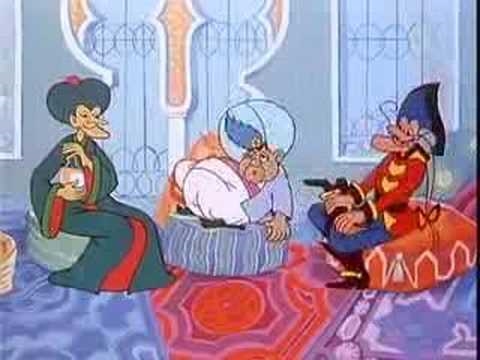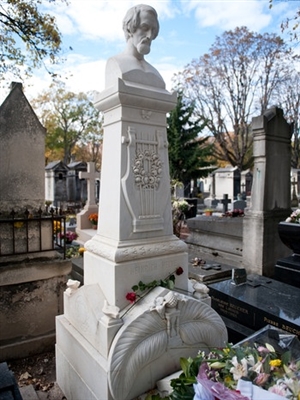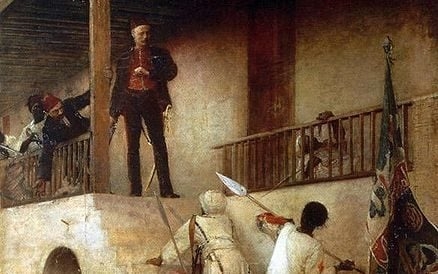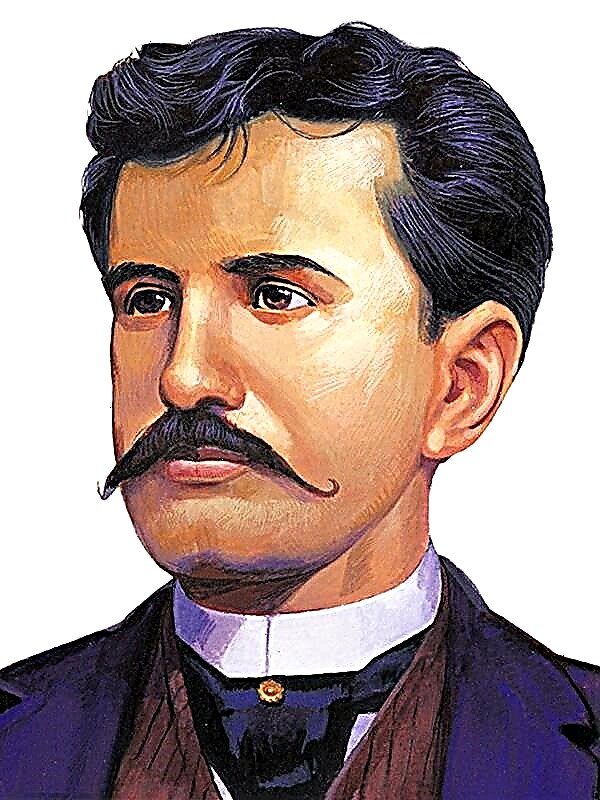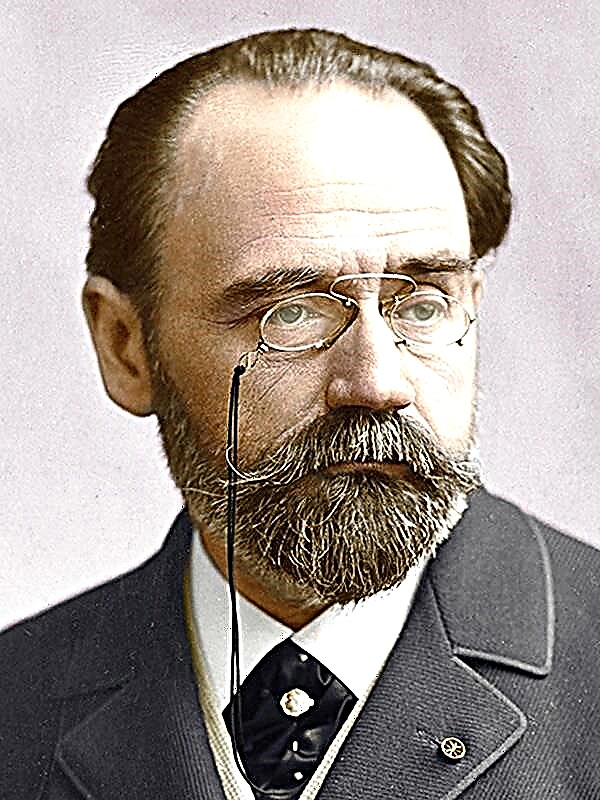The time and place of action are not defined by the playwright, but by all indications, events in all three acts take place in the era of the contemporary author.
House of the Minister. Goal, emphasizing his rights as an old family friend, urges the owner’s wife Irene to urgently talk with her husband about his appointment to the post of prefect. Goal has been in his party for ten years, he was with him in those difficult times when life could be paid for adherence to the ideas he proclaimed. But now the minister has been in power for six months, and his comrades-in-arms who secured his victory have not received anything from this. The moment is quite sharp, there is a struggle in parliament, serious competition has developed between the American Southeast company and the National Bank for the right to build a canal. The Americans, intending to enlist the support of parliamentarians, offer up to thirty thousand per vote, the opposition, of course, profit, and what remains for the supporters of the minister? Discussions about the people, the state, and the good are wonderful, but one cannot so much detach themselves from reality. The party will only benefit if it becomes known that the minister knows how to value the merits of those who support him. Irene makes excuses: she tried several times to start a conversation with her husband, but he does not want to listen to her, she advises not to interfere in matters in which she does not understand. Goal expresses dissatisfaction: it has been going on for a month, he can no longer wait. He is mired in debt, annoying creditors. Who, if not Irene, needs to know how painful financial difficulties are. The young woman is unpleasant about the conversation: of course, she is grateful to Goleh for participation and help when she had debts in which she did not dare to confess to her husband. But the interlocutor proceeds to direct blackmail: the money for Iren was taken from the National Bank, at her disposal is her receipt. Irene promises to talk with her husband today.
The conversation collapses due to the appearance of a longtime friend of the owner of the house Firman. Gol is clearly not sympathetic to him, and after his departure the old man, sensing something was amiss, advises Irene not to help the insidious sly man in his plans. He does not hide his concern: the situation is really tense, public opinion regarding the channel has split. Karl is a great-hearted idealist, wants to be an apostle, but although he has been engaged in political activities for thirty years, he influences people, controls them, does not know them at all. The danger lies not in the opposition, led by the young and ambitious Andri. Danger lurks in his own camp, the minister’s associates are unhappy that they made mistakes in the calculations, and no longer intend to wait.
Having met with her husband, Irene is trying to put in a word for Gol, but Karl is adamant: what the wife asks for is impossible, money cannot be paid for friendship.
The secretary reports that a visitor is waiting in the reception of the minister. Mex, a man from Andri’s inner circle, immediately gets down to business: using his influence, he will help ensure the desired outcome of the vote at an evening parliamentary meeting. In Andri Mex he was disappointed, this young man lacks the necessary scope, he will not go far. Mex is well-off and does not intend to ask much: the title of adviser in exchange for his assistance would have been quite suitable for him. The indignant minister drives the visitor out of the office,
Another visitor appears, Schwender passionately, but rather inconsistently, praises the minister’s activities, declaring himself to be a long-time and loyal like-minded person, and then in veiled form offers services to physically eliminate the head of the opposition. The Minister expels this visitor with indignation. He is a good-minded person, did not miss a single speech, and did not perceive anything from his speeches. Indeed, for how many years he has been repeating: not violence and hatred, but love and justice should be among the people. Well, surprisingly, Firman is ironic, Schwendera seems to be really carried away by Karl’s sermons, and he is ready to serve him as a secret killer because, as he just explained, he was once deceived by an American, and since then he considers them all notorious villains. According to the Minister, there is no such good person who does not act badly, there is no one who could not be corrected. For example, Gol is young, ambitious, he is attracted by wealth and honors. It’s too easy for Golu everything got in life, but you need to go through need and grief to understand yourself.
At a meeting with his party associates, the minister discusses tactics at parliamentary hearings. He expresses confidence that, although the mood in the well-known press and in some circles of the population is not entirely favorable, they will nevertheless be able to turn their own way thanks to the majority in parliament. Kaun demands to use power and arrest Andri: how many dirty frauds the opposition creates, but the minister does not agree: not a single leader is guaranteed from abuse of his name. The opposition was lucky to find a capable, energetic leader, whom, unfortunately, they missed to make their supporter. But beliefs cannot be created by force, people cannot be forced without convincing them. According to Lutz, reforms do fundamental harm to some personal interests. He calls on the minister to act more slowly, more carefully, more moderately. “We are not here to please the people,” the minister retorts. “We must educate him.” Gol offers to distribute all the places in the administration among his people, then the party will have at its disposal an army of agitators. This is not the case when you risk everything and get nothing in return. Outraged by the unworthy speeches, the minister drives Gol away. Companions increasingly disappoint him. Previously, they were inspired, had firm principles, and now they reveal envy, hatred, greed. You can’t think exclusively about your own profit - it will ruin everything. Members of the faction disagree, Firman fears that Karl spoiled the case with his harshness.
There is a meeting of parliament. The question is not in the National Bank and not in the American company, as they try to inspire, counting on cheap patriotism, Andri says. It is about the benefits of the country. The minister was more suited to become a poet who tirelessly encouraged, aroused and warned public conscience. As a fiery apostle of humane ideas, he did a lot for the good of his country, more than one generation enthusiastically listened to his seductive speeches. But the country is in crisis, there are signs of a terrible collapse, and it will crush this extravagant policy of great experiments, for the implementation of which there are not enough forces. The Minister is an honest, but incapable of practical activity man, surrounded by evil advisers and schemers. The speech of the head of the opposition causes a stormy reaction from the audience. During the break, Gol offers Andri incriminating materials against a political rival, but he indignantly rejects his offer. Then Gol enters into negotiations with the director of the American company. Irene, who is in the courtroom, does not withstand the growing tension, she faints, and she is taken home.
After the break, the minister speaks back. To some extent, he manages to reverse the mood of the hall. He explains the reasons that prompted the government to entrust the construction of the canal to the National Bank. And in vain the young colleague regarded their attempts to raise the country as the inept and doomed to failure activities of the outdated generation. The main thing is truth and justice; These ideas, of course, are as old as humanity, but along with humanity are constantly being updated.
It was proposed to conduct a roll-call vote on the issue of the channel, but here Gol asks for words. He makes a revealing statement, accusing the minister of treason and betrayal of the interests of the country. The National Bank bribed him and paid in full. As evidence, Gol presents receipts of the minister’s wife in obtaining a loan. A great scandal erupts. The minister is shocked and confused.
And again, the minister’s house. Carl appears in a tattered, torn clothes. He barely managed to hide from the angry crowd. He could not come to his senses in any way, he had nothing but an honest name, and now he has been branded a thief and a deceiver. Whistles, laughter, insulting shouts are heard from the street, stones are flying in the windows. Karl is surprised at the arrival of Firman: after all, it seems, everyone turned away from him. He urges his friend not to attach importance to the cry to us and the comedians. There is no slander that could not be refuted, but for this you need to be in shape. Karl cannot understand: how could a wife do this? Out of ignorance, Firman believes, she, of course, had no idea how things could turn out. This is the fault of Karl, who failed to explain to Irene that she should be especially careful in her position.
A painful explanation occurs with his wife. Irene did not know that the money was from the bank, over time she was going to return it. She did not want to burden her husband with financial problems, who devoted so much time and effort to work. Karl realizes that he is guilty: he did not notice what was happening next to him in the family, did not manage to become an adviser, an assistant to his wife.
An excited Andri appears. How terrible is the sight of the crowd, these faces, distorted by anger, treachery and hatred, reveling in shame and intoxicated by meanness. He is ashamed and painful that these people extolled him as a hero. How could one be so deceived, it seemed to him that he was guided by honest intentions, but in fact it was revenge for the fact that his political opponent was higher, stronger, more significant than all of them. Andri intends to leave his political career, go to the province, try to live with dignity and decency. Karl is shocked by the recognition of the young man. He sees in him a kindred spirit, also experiencing powerlessness, disappointment. It seems that they both comprehended the truth, clothed it in miserable words - freedom, justice ... But the crowd does not understand them. Well, they will live together quietly among people, gradually winning their souls and hearts, working for the common good. Maybe it’s even for the best that it all happened.





